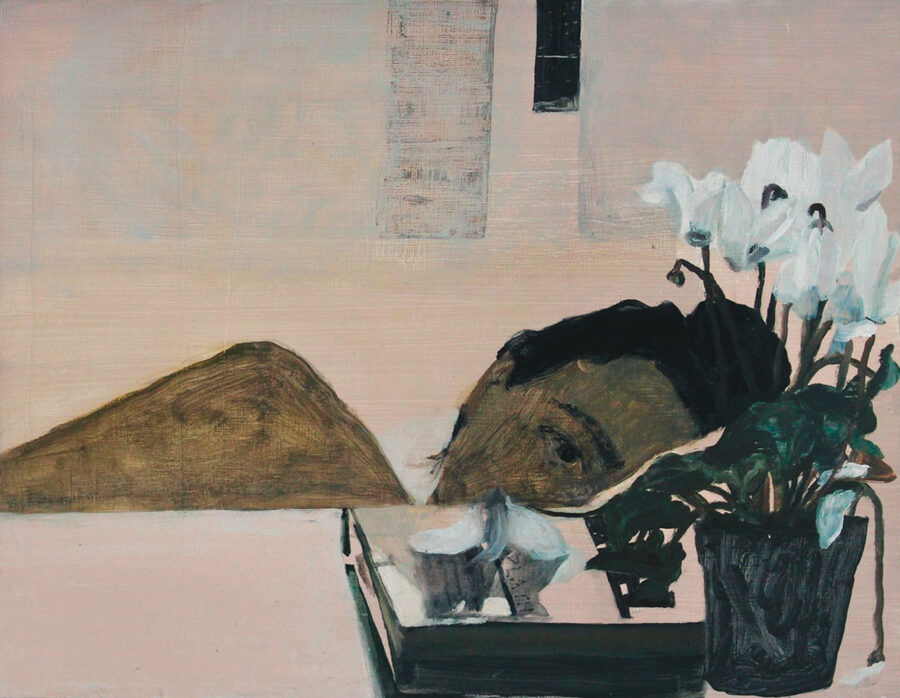Peculiar Things, Yet Intimately Familiar

Nightstand 4, by Aubrey Levinthal © The artist. Courtesy M+B, Los Angeles, and Monya Rowe Gallery, New York City
Discussed in this essay:
Pond, by Claire-Louise Bennett. Riverhead. 208 pages. $16.
Checkout 19, by Claire-Louise Bennett. Riverhead. 288 pages. $27.
“I didn’t want to exist in books,” declares the narrator of Claire-Louise Bennett’s Checkout 19, and yet she is surrounded by them. Checkout 19 is, among other things—ostensibly a novel, for instance—a series of essays on reading, and books of all sorts flock through its pages. “I hadn’t yet read a single word by Italo Calvino, Jean Rhys, Borges, or Thomas Bernhard, nor Clarice Lispector,” the reader is told. “I had read Of Mice…





























































































